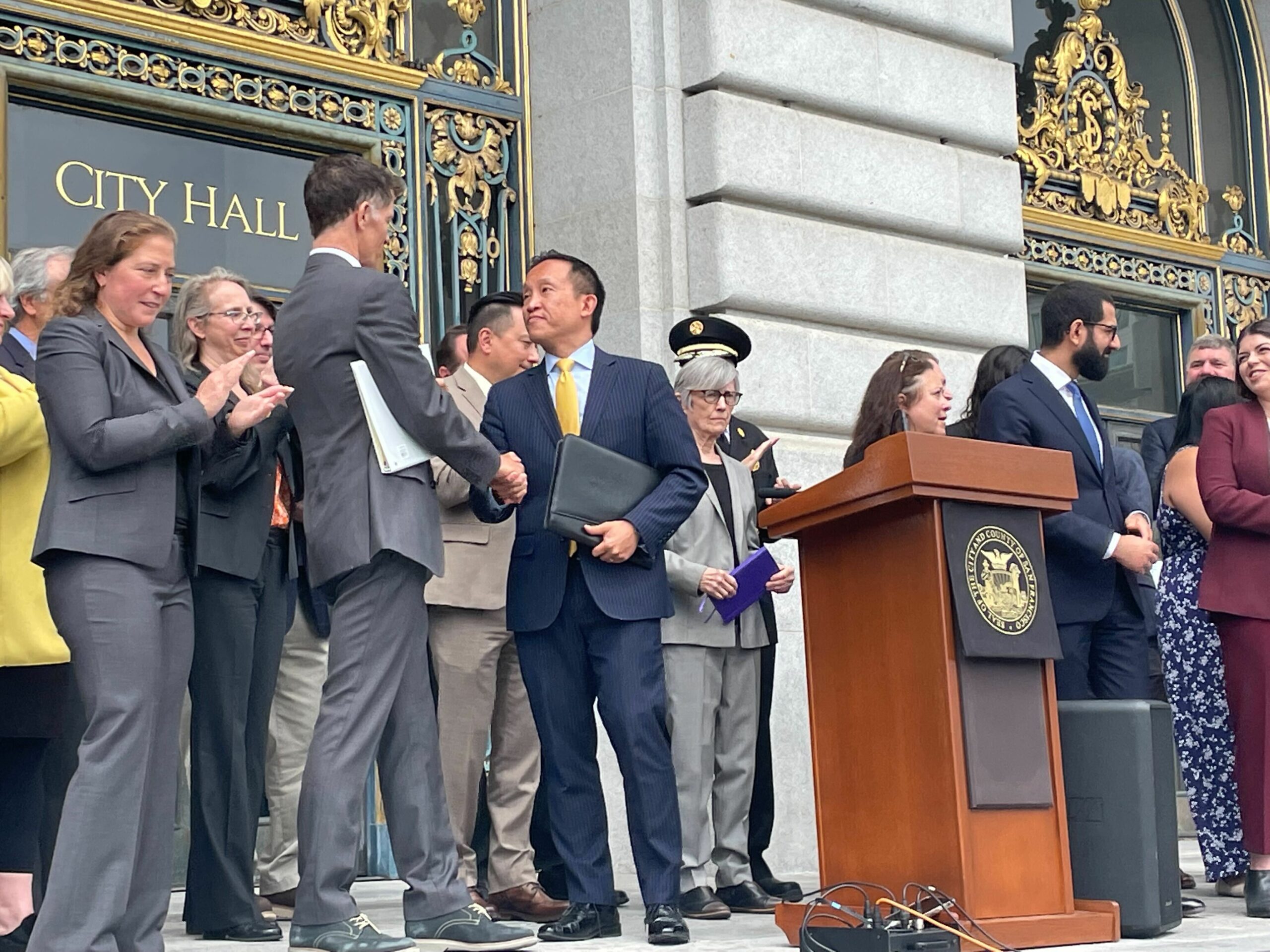Walgreens has agreed to pay San Francisco a $230 million settlement that can be used to address the city’s opioid epidemic, but questions remain about how exactly those funds can be used.
The settlement marks the end of a lawsuit in which the city won over $350 million from the pharmaceutical companies AbbVie, Endo and Teva, along with Walgreens, for their roles in the ongoing drug crisis on the city’s streets. Walgreens will pay its settlement over a 14-year span.
Department of Public Health Director Grant Colfax said at a press conference on Wednesday that the city is likely to use the funds to stock up on overdose reversal medication and create more addiction treatment beds.
Federal Judge Charles Breyer wrote in an Aug. 10 opinion that Walgreens failed to identify red flags that opioid prescriptions were either issued by doctors with suspicious prescribing patterns or were not used for a legitimate medical purpose.
The lawsuit, which started in 2018, is one of a dozen cases across the country in which local and state governments allege that pharmaceutical companies were complicit in overprescribing people opioids.
Walgreens didn’t immediately respond to a request for comment.
Members of the Board of Supervisors have pushed to use some of the settlement funds to create facilities for supervised drug use, which are illegal under state and federal law. In an interview on Wednesday, City Attorney David Chiu declined to offer clarity about whether he would endorse using the funds for that purpose.
“There have been many conversations about safe consumption sites and what we do to move things forward,” Chiu said. “Those conversations continue; we’ll see how it goes.”
Chiu said that he endorses opening safe consumption sites by replicating a model used in New York, which allows a nonprofit to operate the sites using private funding. But advocates for the sites argue that model is unsustainable, and both local service providers and elected officials have called for using settlement funds to fund the sites.
Chiu’s office has said previously that the settlement award is indistinguishable from other public funds and can’t be used to fund the sites.
Chiu said on Wednesday that Gov. Gavin Newsom’s veto of a bill that would’ve legalized safe consumption sites in San Francisco puts the city in a difficult position.
“We are thinking creatively of what we could do,” Chiu said.
